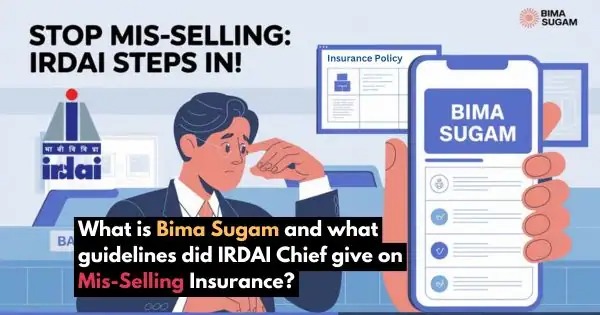B.C. Chakrabarti, J.@mdashThis criminal revisional application at the in stance of the accused petitioners raises a short question whether the Magistrate succeeding "to the office of a Magistrate who had passed an order u/s 144 (2) of the Code of Criminal Procedure and whose order is alleged to have been violated, is competent to file a complaint u/s 195 (1) (a) of the Code of Criminal Procedure. The facts necessary for our present purposes may be stated in a short compass as follows:
2. On an application u/s 144 (2) of the Code of Criminal Procedure Sri Masoddi, the then Executive Magistrate, passed an order on 16.8.79 against the petitioners. After the promulgation of the order Sri Masoddi was transferred and was succeeded by Sri R. N. Saha, Executive Magistrate. Sri Saha lodged a complaint against the opposite parties (the petitioners herein) before the learned Chief Judicial Magistrate at Alipore u/s 188 of the Indian Penal Code. The learned Chief Judicial Magistrate ultimately transferred the case to the Court of another Judicial Magistrate for disposal. The Magistrate found that the complaint was incompetent since the filing of a complaint u/s 188 I. P. C. by the successor-in-office of the Magistrate who passed the order u/s 144 (2) of the Code of Criminal Procedure was illegal.
3. Against this order the opposite party no. 2 moved a motion before the learned Sessions Judge. The learned Judge in disposing of the motion held that the successor-in-office was competent to file the complaint in view of the provisions of section 35 (1) of the Code of Criminal Procedure. The order passed by the learned Judicial Magistrate holding that the complaint was not maintainable was set aside and the case was sent back to the learned Chief Judicial Magistrate for disposal either by himself or by any other Magistrate subordinate to him excepting the particular Judicial Magistrate whose order was under challenge.
4. Being aggrieved by this order, the petitioners have moved the present revisional application and obtained the Rule.
5. The only point that falls for our consideration is whether Sri R.N. Saha, Executive Magistrate, who succeeded to the office of Sri Masoodi, was competent to lodge the complaint in his capacity as the Magistrate succeeding to the office of Sri Masoodi.
6. Section 35 of the Code of Criminal Procedure, 1973 reads as follows:
Powers of Judges and Magistrates exercisable by their successors-in-office (1) subject to the other provisions of this Code, the powers and duties of a Judge or Magistrate may be exercised or performed by his successor-in-office.
Relying upon this provision in the Code, the learned Additional Sessions Judge held that Sri R. N. Saha, who had succeeded Sri Masoodi, was competent to file the complaint in the exercise of his powers and duties.
7. Mr. Chaitanya Chandra Mukherjee appearing in support of the petitioners on the other hand contends that the power to file the complaint for an offence u/s 188 I. P. C. is with the public servant concerned or some other public servant to whom he is administratively subordinate. Mr. Mukherjee''s contention in short is that the public servant concerned here was Sri Masoodi and in his absence the only other person competent to file the complaint was a public servant who happened to be administratively superior to Mr. Masoodi and none else. In support of this contention Mr. Mukherjee relied on the case of
8. In the instant case before us if the complaint had been filed by Sri Masoodi, it would come squarely within the meaning of the decision referred to above. But here the complaint has been filed by the successor Magistrate. Section 35 (1), as we have already indicated, provides that the powers and duties of the Magistrate may be exercised or performed by his successor-in-office subject to the other provisions of this Code. The expression subject to the other provisions of this Code only means that in exercising the powers and duties with the aid of section 35 there should be no conflict with any other provision in the Code itself. If we hold, as we are inclined to do, that a successor-in-office of a Magistrate is entitled to file a complaint, that, in our view, would not be in any way in conflict with the provisions of section 195 (1) (a) of the Code. We have already indicated that section 195 (1) (a) empowers the public servant concerned to lodge a complaint. In the instant case, the public servant concerned is a Magistrate. Section 35 provides that the powers and duties of a Magistrate may be exercised by the successor-in-office. In the event of violation of an order passed by a Magistrate the Magistrate has the power and also the duty to lodge a complaint u/s 195 (1) (a). This power and duty, in our view, can be exercised by the successor-in-office of a Magistrate in view of the provisions of section 35 (1) of the Code. In doing so, he does not cease to be a public servant within the meaning of section 195(1)(a). Therefore, if the successor Magistrate lodges a complaint, it cannot be said that he does otherwise than as a public servant. If he is a public servant, he is certainly competent to file the complaint. The position has been considered in a Supreme Court decision in the case of
9. Considered in that light we are also of the view that section 195 (1) empowers a public servant to lodge a complaint and a successor Magistrate is a public servant within the meaning of section 35 (1) of the Code. It is true that in section 195 (1) (a) the expression used is the public servant concerned or some other public servant to whom he is administratively subordinate." It is not stated here that the complaint should be by the Magistrate concerned or by the Magistrate to whom he is subordinate. The Legislature in its wisdom avoided using such an expression because public servant may include many other categories of officers besides a Judge or a Magistrate. Therefore, if section 195(1) used the expression Magistrates or Judges only in place of public servant, it could have disentitled other categories of public servants from lodging a complaint. But that is not the scheme of the Act nor the intention of the Legislature. A Magistrate being a public servant and a successor being also a public servant entitled to exercise all the powers and duties of his predecessor-in-office in our view is competent to file the complaint. To hold, as we have held, that a successor Magistrate falls within the category of a public servant would be quite in conformity with section 195 (1) (a) of the Code and therefore the complaint lodged by him could be, in our view, a competent one lodged by one falling in the first of the two categories referred to in that section.
The view we have taken find support in a decision of this Court in the case of Manicklal Bhagat vs. The State & Anr. 1982 (1) C. H. N. 149. This also is a judgment by a learned single Judge and it has been held therein that the power to make a complaint conferred by section 195(1) (a) is not a personal privilege and can be exercised by a public servant who for the time being holds the same office by reason of succeeding to that office on the transfer of the officer making the order allegedly violated. The decision in the case of BachuramKar & Ors. vs. the State (Supra) relied on by Mr. Mukherjee does not, in our view, hold any contrary proposition. It only holds in the facts and circumstances of that particular case that the public servant concerned viz., the particular public servant whose order was allegedly violated though not holding the same office at the time of making the order was competent to file the complaint. His Lordship was not concerned with the question as to the defect of section 35 or for the matter of that section 559 (1) of the Code as it then stood.
In that view of the matter we find that the complaint lodged in this case by the Magistrate was a competent one. We, therefore, do not find anything to justify interference with the impugned order.
We however, make it clear that we have refrained from making any observations with regard to the merits of the allegations in the complaint since that is irrelevant for our present purposes and beyond the scope of the present application. That is a question which is left open for consideration at the appropriate stage.
The application therefore fails and is dismissed and the Rule is accordingly discharged. Let the records be sent down as soon as possible.
Jitendra Nath Chaudhuri, J.
I agree.

